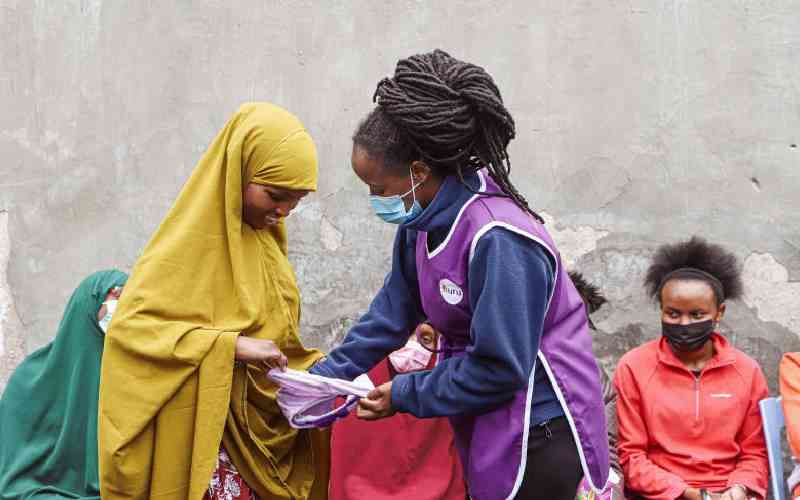×
The Standard e-Paper
Stay Informed, Even Offline

A community health volunteer in Mukuru Kwa Reuben demonstrates to girls how to use a sanitary towel on Friday, May 26, 2023. [ Photo, Courtesy]
In response to the challenges of seeking accurate information on menstrual health, UNICEF has launched 'Oky Kenya', a new mobile app meant to close the information gap.